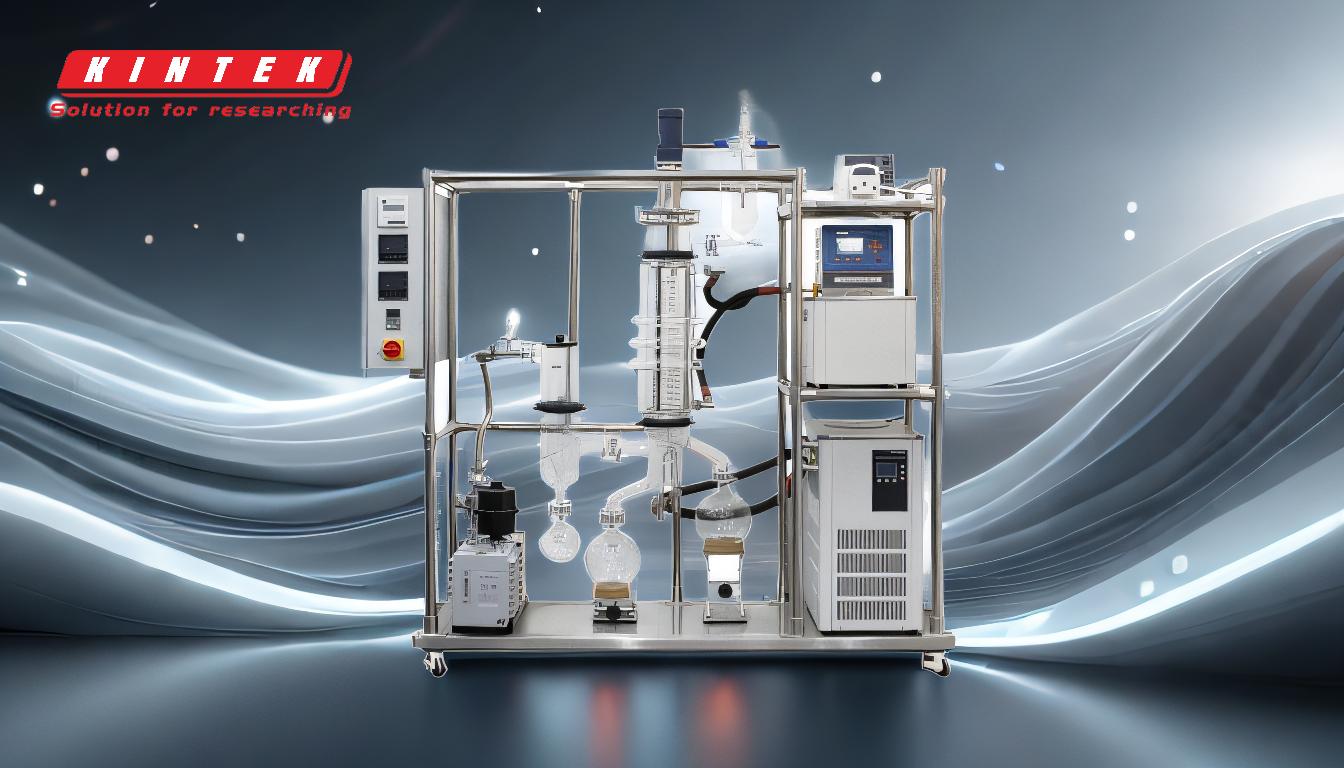Distillation is both a purification and separation technique, depending on the context and goal of the process. At its core, distillation separates components of a liquid mixture based on differences in their volatility, boiling points, and thermodynamic properties. However, the end result often involves purification, as the process isolates specific components in a more concentrated or nearly pure form. For example, in the production of CBD or THC oil, distillation is used to separate and purify the desired compounds from impurities, resulting in a high-quality product. Thus, distillation serves dual purposes: separating mixtures into their constituent parts and purifying those parts to achieve higher concentrations or purity levels.
Key Points Explained:

-
Distillation as a Separation Technique
- Distillation separates components of a liquid mixture by exploiting differences in their boiling points and volatility.
- The process involves heating the mixture to vaporize the more volatile components, which are then condensed back into liquid form, effectively separating them from the less volatile components.
- This separation is based on thermodynamic properties, such as vapor pressure and boiling points, which vary among different substances in the mixture.
-
Distillation as a Purification Technique
- While distillation separates components, it also purifies them by isolating specific substances in a more concentrated or nearly pure form.
- For example, in the production of CBD or THC oil, distillation removes impurities and unwanted compounds, leaving behind a highly purified product.
- The process requires precise control of temperature, pressure, and feed rates to ensure the purity and quality of the final product.
-
Dual Purpose of Distillation
- Distillation serves both separation and purification purposes, depending on the application.
- In industrial and laboratory settings, it is used to separate mixtures into their constituent parts, such as isolating ethanol from water in alcohol production.
- Simultaneously, it purifies these components by removing impurities and concentrating the desired substances.
-
Applications of Distillation
- Distillation is widely used in chemical labs, industrial factories, and even household applications.
- Common examples include the production of distilled water, purification of essential oils, and isolation of specific compounds in pharmaceuticals.
- In the cannabis industry, distillation is critical for producing high-purity CBD or THC oil by separating and purifying these compounds from plant material and solvents.
-
Key Factors in the Distillation Process
- Temperature control is essential to ensure that the desired components vaporize and condense at the correct stages.
- Pressure adjustments can influence boiling points, making it easier to separate components with similar volatility.
- Feed rates and equipment design also play a role in optimizing the efficiency and purity of the distillation process.
-
Distillation vs. Other Separation Techniques
- Unlike filtration or centrifugation, which separate components based on physical properties like size or density, distillation relies on differences in volatility and boiling points.
- This makes distillation particularly effective for separating liquid mixtures where components have distinct boiling points.
-
Conclusion: Distillation as Both Separation and Purification
- Distillation is inherently a separation technique, but its ability to isolate and concentrate specific components makes it a powerful purification tool as well.
- Whether the goal is to separate a mixture into its parts or to purify a specific component, distillation is a versatile and widely used method in science and industry.
By understanding the principles and applications of distillation, it becomes clear that the process is not limited to just separation or purification but serves both purposes effectively, depending on the desired outcome.
Summary Table:
| Aspect | Description |
|---|---|
| Separation Technique | Separates components based on boiling points and volatility. |
| Purification Technique | Isolates and concentrates specific substances, removing impurities. |
| Key Applications | CBD/THC oil production, distilled water, essential oils, pharmaceuticals. |
| Key Factors | Temperature control, pressure adjustments, feed rates, and equipment design. |
| Distillation vs. Others | Relies on volatility and boiling points, unlike filtration or centrifugation. |
Discover how distillation can optimize your processes—contact our experts today for tailored solutions!









